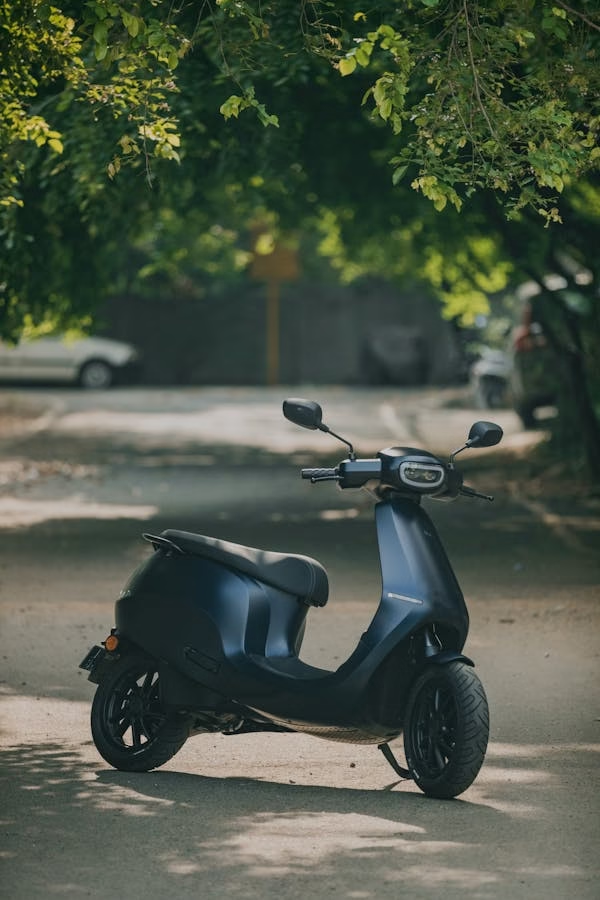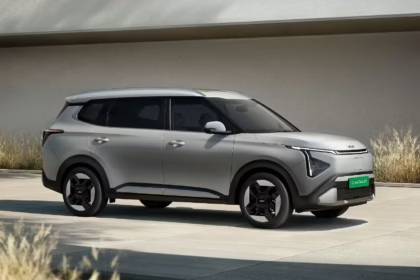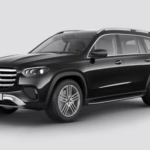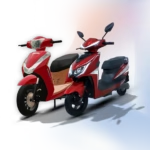Introduction
The Indian electric vehicle (EV) market is growing rapidly as the nation ramps up efforts towards cleaner and greener modes of transport. As awareness about pollution mounts and the government encourages electric mobility through incentives, sales of EVs, particularly electric scooters, have seen a massive increase in the past few years. EVs offer a green and affordable alternative to conventional petrol-run two-wheelers and are, therefore, extremely popular among urban and semi-urban commuter segments.
Accordingly, Suzuki, a well-known and trusted auto brand in India, has announced its entry into the electric scooter vehicle (EV) segment. The company’s new electric scooter will be Suzuki’s first and is scheduled for release by the end of 2025.
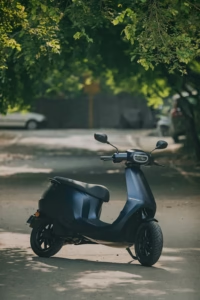
Background on Suzuki’s EV Journey
Suzuki has been strengthening its position in the global electric vehicle (EV) market as part of its long-term plan to adopt cleaner and greener mobility solutions. Recognizing the increasing importance of electric mobility worldwide, Suzuki has made targeted investments in research and development to develop electric and hybrid vehicles that consider changing environmental regulations, local mine environments, and private or customer expectations of these electric vehicles. Suzuki strives to balance performance, price, and environmental considerations for its cars.
Suzuki has accelerated the development of its electric vehicle competency, including the creation of concept electric scooters and compact EVs for urban use. Suzuki has also showcased several electric scooter concepts at auto shows and expositions, providing hints for future product development in clean mobility. With the news of its initial electric scooter launch in India, Suzuki is likely to introduce an all-around product that is particularly targeted at meeting the demands of Indian consumers. The scooter is expected to offer a competitive range, charging efficiency, and a convenient design for city and semi-urban driving.
Details of the Upcoming Electric Scooter
Suzuki Motorcycle India has commenced production of its first electric scooter, the e-Access, at its Gurugram plant, with a scheduled market launch in September 2025. The model is Suzuki’s strategic foray into India’s growing electric two-wheeler market
The e-Access comes with a 3.07 kWh lithium-iron-phosphate (LFP) battery pack, offering an asserted range of 95 km per charge under Indian Driving Cycle (IDC) conditions. The scooter is powered by a 4.1 kW motor with a maximum torque of 15 Nm, achieving a top speed of 71 km/h. The charging time ranges from: a full charge with the regular portable charger takes about 6 hours and 42 minutes, whereas a full charge using a fast charger can be achieved in roughly 2 hours and 12 minutes.
Design-wise, the e-Access draws inspiration from Suzuki’s Access 125, featuring a modern and sleek appearance. It gets a color TFT LCD with smartphone connectivity via the Suzuki Ride Connect-E app, providing navigation and call notifications. The scooter is offered in three dual-tone shades of Metallic Mat Black No.2/Metallic Mat Bordeaux Red, Pearl Grace White/Metallic Mat Fibroin Gray, and Pearl Jade Green/Metallic Mat Fibroin Gray.
Competitive Landscape
India’s electric scooter industry has experienced rapid growth, driven by rising environmental concerns, government incentives, and the introduction of enhanced charging facilities. Ola Electric dominates with its S1 Pro and S1X products, which are recognized for their long-range travel and intelligent connectivity features. Ather Energy has established a niche for itself with its high-end scooters, such as the 450X, delivering great performance, sophisticated ride modes, and a well-established charging network. TVS iQube and Bajaj Chetak also command a lot of loyalty from customers, providing stylish looks along with good performance.
Suzuki’s upcoming electric scooter enters this competitive landscape with promising features and specifications. Positioned competitively in terms of price—expected between Rs. 1.10 lakh and Rs. 1.30 lakh—it aims to offer good mileage with a claimed range of around 95 km per charge, which suits typical urban and semi-urban usage patterns.
Where Suzuki can further differentiate itself through its vast after-sales support network, established over the years in India’s two-wheeler market, offering easier maintenance and assured customer support, the synergy of credible brand value, competitive pricing, reasonable mileage, and sensible features might enable Suzuki to establish a robust position amidst the already competitive EV scooter segment.
Importance of Mileage and Charging
While the average distance a scooter is required to travel by electric scooter users may vary greatly, the range per charge is an important consideration to prospective electric scooter users in India, as many users will be using the scooter for different trips, sometimes on the same day. As long as the electric scooter has a range, users can complete their tasks or commute to and from work without fear of running out of battery while doing so. This is particularly useful in opening doors to alleviate range anxiety, which is prevalent among prospective EV users who are concerned about running out of battery charge and ending up stranded.
The overall charging infrastructure in India is relatively limited and still developing, particularly for charging stations and other public infrastructure to charge electric vehicles (EVs). However, it is stronger in major urban areas. In metropolitan cities, public charging stations are more commonplace; however, in lower-tier cities, semi-urban or rural areas, there are fewer options for charging. Therefore, home and workplace charging is crucial for the majority of electric scooter users.
Suzuki’s entrance into the market will largely depend on and focus on their existing dealer and service network to provide convenient charging options, as well as support for proper maintenance of their electric scooters. However, they have not specified whether they have dedicated fast-charging infrastructure in mind at this time. An electric scooter that is reliable in terms of range and charging time will always provide usable convenience and cost savings for the user. Users can decrease the amount of petrol consumed and subsequent operational costs while simultaneously being more environmentally friendly.
Government Policies and Incentives
The government has implemented various policies and incentives to promote the adoption of electric vehicles (EVs), which could impact Suzuki’s upcoming sales of electric scooters. The FAME scheme, which had been crucial in offering subsidies for electric vehicles (EVs), expired in March 2024 and was replaced with the PM Electric Drive Revolution In Innovative Vehicle Enhancement, which has a budget of Rs. 4,000 crore. The PM E-DRIVE scheme is designed to enhance the adoption of electric vehicle technologies and innovations.
Meanwhile, state governments also provide incentives. Uttar Pradesh offers subsidies of Rs. 5,000 for electric 2-wheelers and waives EV road tax and registration fees. Other states, such as Maharashtra and West Bengal, may provide subsidies of up to Rs. 10,000 per kWh for batteries, with overall limits of Rs. 2.5 lakh and Rs. 1.5 lakh, respectively.
Incentives may make Suzuki’s electric scooter even more affordable and might increase interest from consumers on a budget. The benefits of local subsidies on the price of the electric scooter that Suzuki hopes to introduce will likely vary in significance based on the specific subsidies offered by different states. The existing service infrastructure provided by Suzuki, combined with brand familiarity, should also instill some consumer confidence in electric mobility for their next scooter purchase.
Challenges Suzuki May Face
Suzuki may have entered the electronic scooter space at a favorable time and offered a stylish product, but it faces several challenges. The global electric vehicle (EV) industry has experienced periodic shortages of key components, including lithium-ion batteries and semiconductor chips. It will be critical for Suzuki to maintain a consistent supply and timely manufacturing schedule of its scooters; otherwise, it may miss their launch schedule or provide limited launch availability. Any disruption to scheduled production may also negatively impact market momentum.
Competition is another challenge. Major competitors in the two-wheeler electric vehicle (EV) market include Ola Electric, Ather Energy, TVS, Bajaj, and Hero Electric, all of which have established brands, proven products, customer loyalty, and significant experience in the two-wheeler EV segment. People want to support companies that pay fairly and treat their employees well; unfortunately, Suzuki has not built this trust among consumers. Therefore, it will require competitive pricing, innovative features, and an effective marketing campaign to capture market share in a rapidly evolving market successfully.
Consumer acceptance is another hurdle. While electric scooters are gaining awareness, prospective buyers still have hesitations about range, battery life, and charging. Suzuki has extensive aftermarket service experience in the two-wheeler market in India; however, its service staff must be trained to service electric vehicles (EVs) and their batteries.
Conclusion
Suzuki’s electric scooter has been launched in India’s electric scooter market, enabling Suzuki to meaningfully participate in India’s booming electric vehicle (EV) market. The e-Access marries Suzuki’s historic brand equity along with features of modern-day electric mobility. Together, this creation serves as an attractive alternative to conventional petrol scooters.
The e-Access will offer family-friendly pricing and significant features, along with Suzuki’s existing service support, making this entry a meaningful and competitive option in the Indian electric scooter segment.
FAQs
When will Suzuki launch its first electric scooter in India?
Suzuki is expected to launch its first electric scooter, the e-Access, in September 2025.
What is the claimed range of Suzuki’s electric scooter?
The e-Access offers a claimed range of approximately 95 km on a full charge under Indian Driving Cycle conditions.
What type of battery does the Suzuki e-Access use?
It is equipped with a 3.07 kWh lithium-iron-phosphate battery, known for its safety and longevity.
How long does it take to charge the scooter fully?
Charging takes about 6-7 hours using a standard portable charger and around 2 hours with a fast charger.
What is the top speed of the Suzuki e-Access electric scooter?
The scooter has a top speed of around 71 km/h.
What features does the Suzuki e-Access offer?
The key features of the Suzuki electric scooter include a color TFT LCD, smartphone connectivity via the Suzuki Ride Connect-E app, navigation, and call alerts.
What is the expected price range of Suzuki’s electric scooter?
The ex-showroom price is expected to be between Rs. 1.10 lakh and Rs. 1.30 lakh.
How does Suzuki’s electric scooter compare with competitors?
Suzuki aims to offer a balance of good range, affordable pricing, trusted brand value, and reliable after-sales service.
Are there any government incentives available for buying this electric scooter?
Yes, buyers can benefit from central and state government subsidies, which vary by region and can reduce the effective purchase price.
What kind of after-sales support can customers expect?
Suzuki plans to leverage its extensive service network across India to provide reliable maintenance and support for its electric scooters.

